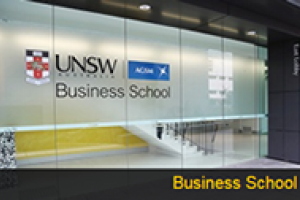
Biography
Catherine researches how to develop and sustain team effectiveness. She examines how these changes are created from individuals’ proactivity, team processes, work design, organisational structures and systems. Her recent work focuses on how organisational ambidexterity – balancing the tension of coordination across business units for efficiency alongside front line flexibility for innovation and engagement – is needed for teams to...view more
Catherine researches how to develop and sustain team effectiveness. She examines how these changes are created from individuals’ proactivity, team processes, work design, organisational structures and systems. Her recent work focuses on how organisational ambidexterity – balancing the tension of coordination across business units for efficiency alongside front line flexibility for innovation and engagement – is needed for teams to thrive. Other research interests include seeking to understand why managers do (or don’t!) use research findings (i.e., evidence-based management) as well as employee well-being. Her applied research in organisations has attracted more than $1M of research funding and is published in top tier journals.
My Research Supervision
Supervision keywords
Areas of supervision
Teamwork and multi-team systems, with a focus on interventions to improve human and human-technology collaboration.
Currently searching for 2 PhD candidates for an ARC ITTC grant in the architecture, engineering, and construction industry.
- What factors in the AEC work environment help and hinder knowledge flows and digital innovation within and between teams and projects? This topic may include: an examination of tools that impact knowledge flows and innovation; an investigation of multi-team systems; and an exploration of how systems thinking and strategic foresight research might be integrated to create a comprehensive framework for retaining and transferring knowledge between projects.
- What are the learning mechanisms and change processes in AEC firms that facilitate or hinder organisational performance outcomes – including digital transformation? This topic may include: consideration of barriers to learning in computational design methods and workflows both within and across organisations; the impact of training courses; and a broad exploration of how organisational learning affects firm behaviour (for example, procedures and activities) and performance (such as sustainability).
My Teaching
Current: MGMT5710: Managing & Leading People
Previous:
COMM1170: Organisational Resources
COMM1110: Evidence-Based Problem-Solving
COMM1120: Collaboration & Innovation in Business
MGMT1001: Introduction to Management
MGMT1002: Organisational Behaviour
